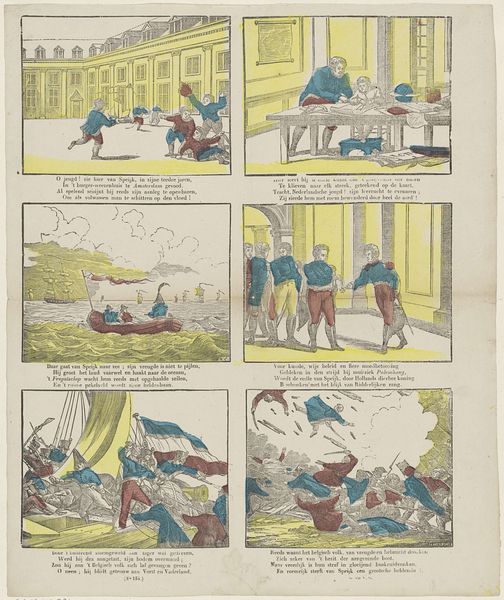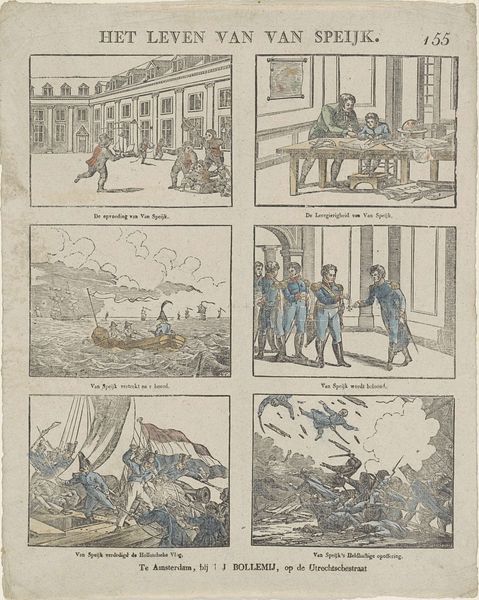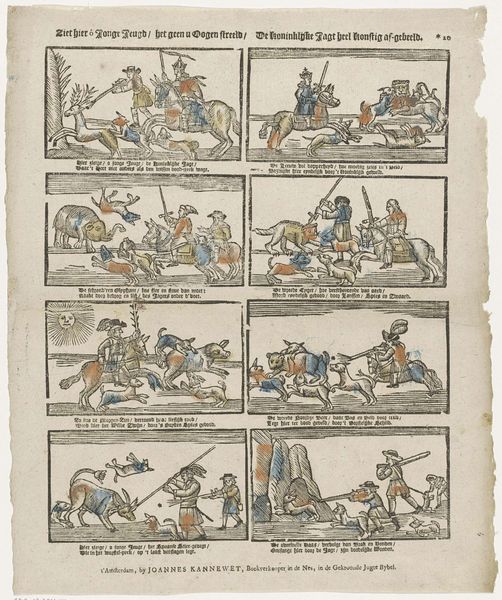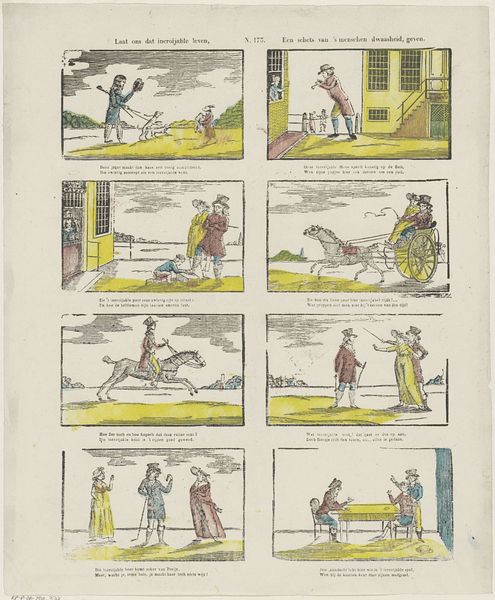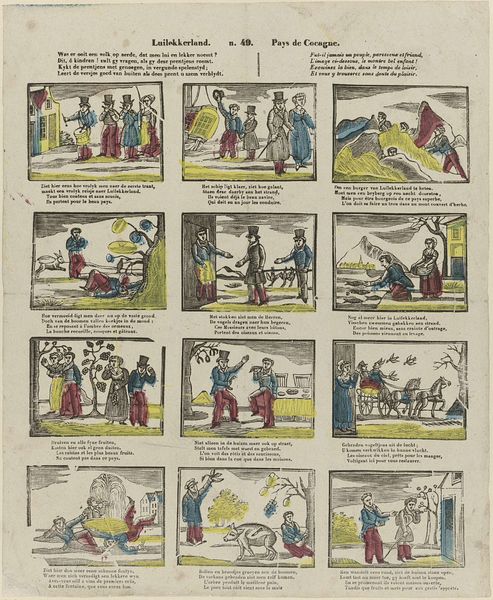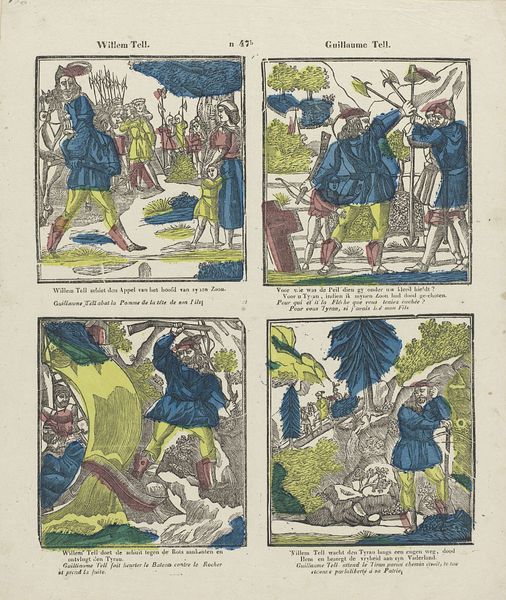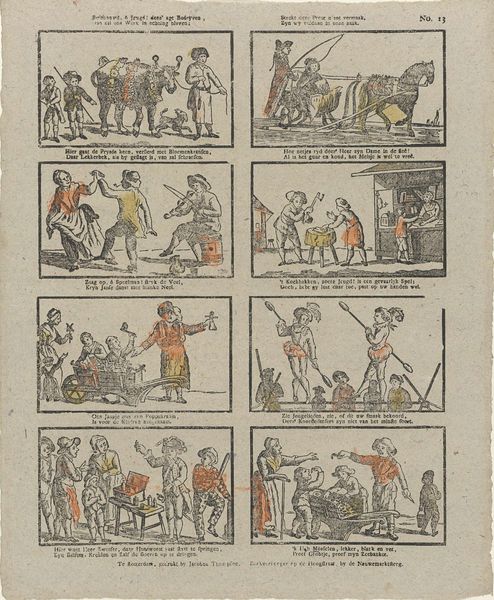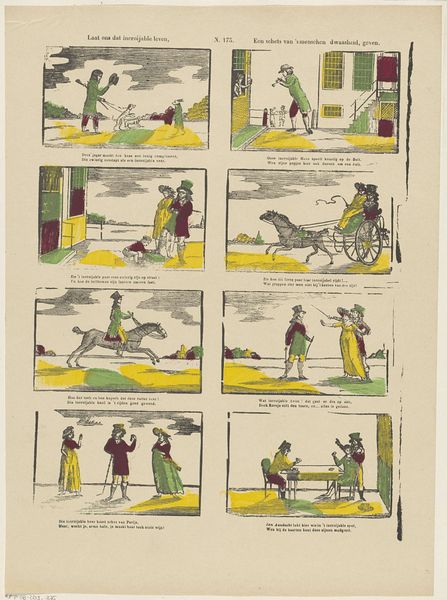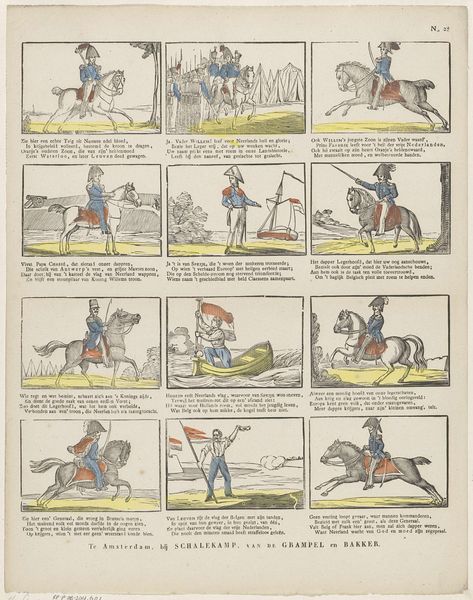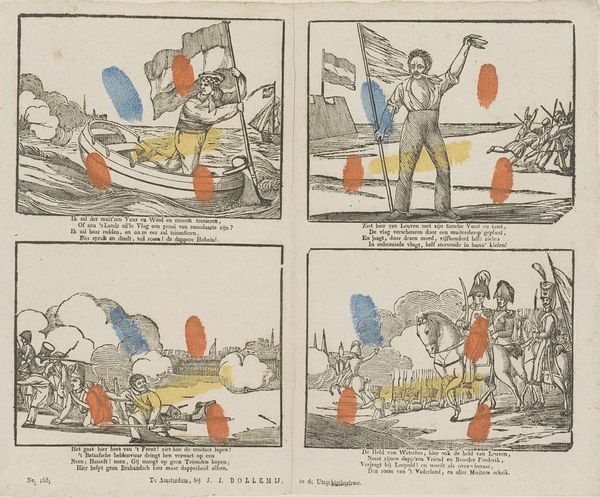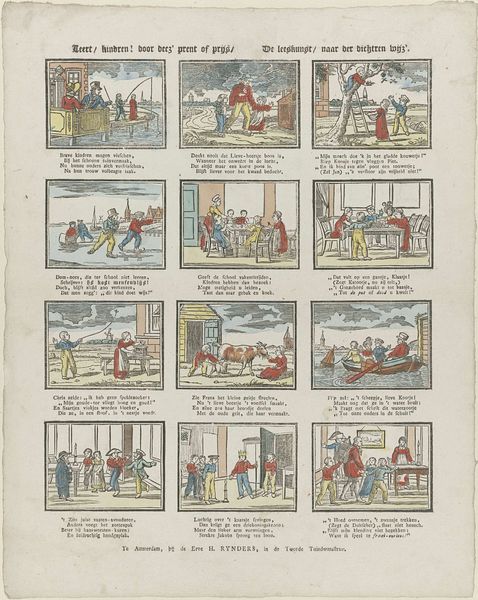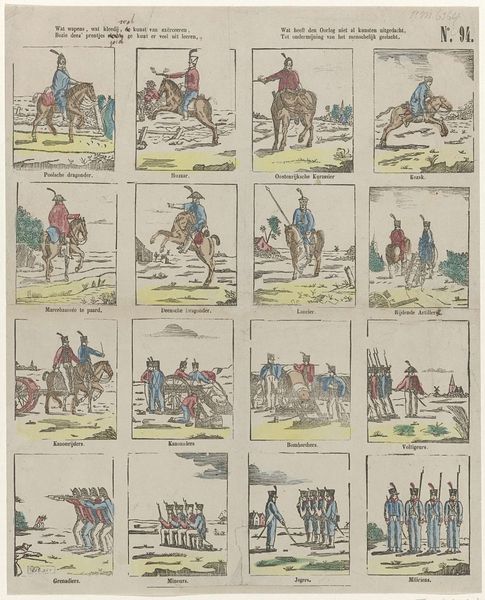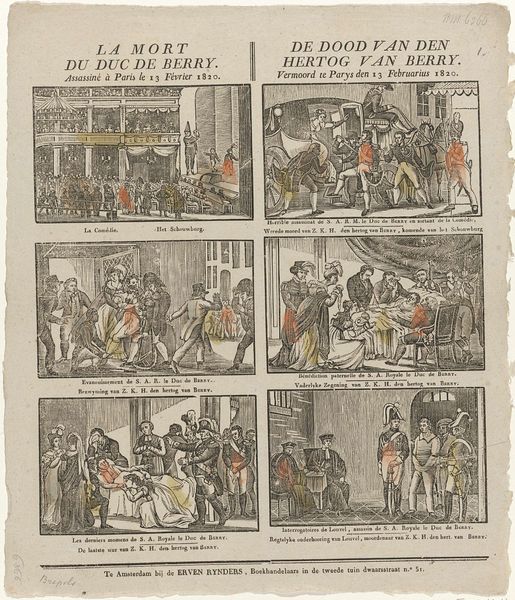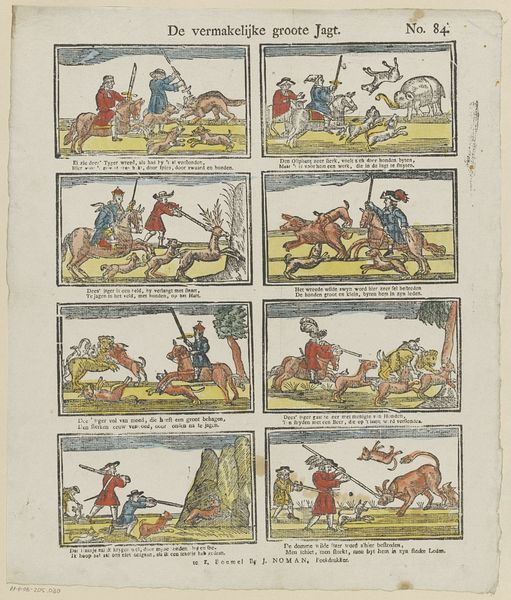
print, etching
#
comic strip sketch
#
quirky sketch
#
narrative-art
#
dutch-golden-age
# print
#
etching
#
sketch book
#
personal sketchbook
#
sketchwork
#
thumbnail sketching
#
pen work
#
sketchbook drawing
#
genre-painting
#
history-painting
#
storyboard and sketchbook work
#
sketchbook art
Dimensions: height 396 mm, width 327 mm
Copyright: Rijks Museum: Open Domain
This print, "Life of Van Speijk", was made by Alexander Cranendoncq, sometime in the early 19th century. It's a lithograph, a printing technique that democratized image production. It allowed for relatively quick reproduction and widespread distribution, making art accessible beyond elite circles. The lithographic process itself is interesting here: the artist would draw on a flat stone with a greasy crayon, then treat the stone to accept ink only where the crayon was. This printmaking method allowed for the easy reproduction of images. The print's hand-colored details add another layer of significance, offering subtle details. Each copy would have been touched by an artisan, blurring the lines between mass production and individual craftsmanship. The print’s content – a celebration of a national hero – speaks volumes about the rise of nationalism and the construction of historical narratives in the 19th century. By examining its materials and making, we gain insight into the broader social and political context in which it was created. This reminds us that art is always intertwined with labor, politics, and consumption.
Comments
No comments
Be the first to comment and join the conversation on the ultimate creative platform.
